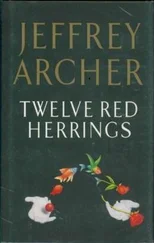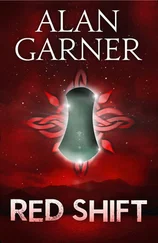Alan Bradley - A Red Herring Without Mustard - A Flavia de Luce Novel
Здесь есть возможность читать онлайн «Alan Bradley - A Red Herring Without Mustard - A Flavia de Luce Novel» весь текст электронной книги совершенно бесплатно (целиком полную версию без сокращений). В некоторых случаях можно слушать аудио, скачать через торрент в формате fb2 и присутствует краткое содержание. Жанр: Старинная литература, на русском языке. Описание произведения, (предисловие) а так же отзывы посетителей доступны на портале библиотеки ЛибКат.
- Название:A Red Herring Without Mustard: A Flavia de Luce Novel
- Автор:
- Жанр:
- Год:неизвестен
- ISBN:нет данных
- Рейтинг книги:4 / 5. Голосов: 1
-
Избранное:Добавить в избранное
- Отзывы:
-
Ваша оценка:
- 80
- 1
- 2
- 3
- 4
- 5
A Red Herring Without Mustard: A Flavia de Luce Novel: краткое содержание, описание и аннотация
Предлагаем к чтению аннотацию, описание, краткое содержание или предисловие (зависит от того, что написал сам автор книги «A Red Herring Without Mustard: A Flavia de Luce Novel»). Если вы не нашли необходимую информацию о книге — напишите в комментариях, мы постараемся отыскать её.
A Red Herring Without Mustard: A Flavia de Luce Novel — читать онлайн бесплатно полную книгу (весь текст) целиком
Ниже представлен текст книги, разбитый по страницам. Система сохранения места последней прочитанной страницы, позволяет с удобством читать онлайн бесплатно книгу «A Red Herring Without Mustard: A Flavia de Luce Novel», без необходимости каждый раз заново искать на чём Вы остановились. Поставьте закладку, и сможете в любой момент перейти на страницу, на которой закончили чтение.
Интервал:
Закладка:
“Yaroo!” The cry came out of me quite unexpectedly, but I recognized it at once. It was the battle cry of a savage—a fierce, fearless bellowing that rose up out of my ancestral lungs as if it had been lying in wait for centuries.
“Yaroo!” I let another fly just for pleasure. It felt good.
Mrs. Bull didn’t stop—but she faltered—missed a step—and I shot past.
I looked back over my shoulder and saw the woman standing in the road, her fists shaking, her red face contorted with fury as she screamed: “Tom, get yourself out here … and bring the ax!”
I sat on the river’s edge letting the water cool my feet. There was an unearthly silence in the Palings, and I shivered a little at the thought of the things that had happened within the past few days. First there had been the attack on Fenella, followed almost immediately by the death of Brookie Harewood. Then, too, Porcelain had told me, just before she’d cleared off, that the police had found the body of a baby—probably the Bulls’ baby—right here in the grove. I suppose I should have felt sorry for the mother. She may have been mad with grief, for all I knew. Perhaps I should have taken my life in my hands and expressed my condolences.
But life is never easy, is it? If only one could make time run backwards, as it does in those short subjects at the cinema where dynamited factory chimneys fall upwards and restore themselves, and shattered bits of glass fly together to form a vase …
In such a world I could, if I wished, bicycle backwards up the Gully, dismount from Gladys, and give the woman a hug. I could tell her I was sorry they’d found the body of her baby buried here in the Palings, and that if there was anything I could do to help, she had only to ask.
I sighed.
Across the river and through the trees, not far from where Fenella’s caravan was parked, I could see a mound of fresh soil. That must be the spot where the body had been found.
Other than the fact that she’d seen the baby’s foot—“Wrapped in a carpet, or something,” she had said, “a bundle of old green bones”—Porcelain hadn’t given me any more of the details. And it was too late now—Porcelain was gone.
I could hardly ask Inspector Hewitt about the discovery of the body, and until I had the opportunity to find out from Mrs. Mullet what the village was saying, I was on my own. I would wade across and have a look.
The river was not very deep here. The Hobblers, after all, had been coming to this spot for centuries to baptize their babies. The water was of just sufficient depth for a good old ducking, and I was no more than a hundred feet from the disturbed spot where the police had evidently made their gruesome find.
I hitched up the hem of my dress a couple of inches and started across.
Even a few feet out from the bank, the water grew noticeably colder on the bottom as I waded slowly towards the center, my arms widespread for balance, taking great care not to lose my footing in the ever-strengthening current.
Soon I was at the halfway point—and then I was past it. The water level had receded to just below my knees when I stepped on something hard, stumbled, missed my footing, and went flailing tail-over-teakettle into the water. Total immersion.
“Oh, rat spit!” I said. I was furious with myself. Why hadn’t I taken Gladys and walked her across the little bridge?
“Double rat spit!”
I scrambled to my feet and looked down at myself. My dress was completely soaked.
Father would be furious.
“Damn it all—dash it all, Flavia,” he would say, as he always did, and then would begin one of those silences between us that would last for several days until one of us forgot about my offense. “Being at loggerheads,” Daffy called it, and now, as I stood knee-deep in the water, I tried to imagine that I had been suddenly transported to a cold, rushing river somewhere in the Canadian north woods, with the severed heads of the loggers bobbing past me in the current like bloated, grizzled apples.
But practicality brought me back to Bishop’s Lacey. I knew that when I got home to Buckshaw, I would have to sneak into the house, make my way upstairs, and rinse out the dress in the sink of my laboratory.
In the water, the little cloud of mud stirred up by my feet was clearing quickly.
It was odd—although I could easily see the tops of my feet on the river’s bed, there were no stones in sight. And yet I had certainly tripped on something hard. I had nearly broken a toe on the stupid thing. As I had done before !
I stood there for a moment, already feeling a chill in the September air.
Something in the water shifted: a bubble … a ripple of water … of light.
Slowly I bent at the waist and reached carefully into the river’s depths.
A little deeper … a little farther to the left. Although I couldn’t see it, my fingers closed around something hard. I took a firm grip and lifted it towards the surface.
As the object came up towards me through the water it became visible. It was eerie.
Hard … transparent … invisible in the water … becoming visible as it came into the air.
A sudden sinking feeling told me that my heart already knew what the thing was before my head did, and both had already begun to pound as I realized that the object I was holding in my streaming hands was Fenella’s crystal ball—the ball with which some unknown person had bashed in her skull: the ball with which someone had tried to kill her.
The thing had been lying on the river bottom for days, its transparency making it invisible in the water even though it was in plain sight. No wonder the police had missed it!
Only if they had waded around in the shallows—and only then if they had stepped upon it by accident, as I had—would they have found the object of their search.
I would, of course, take it to Inspector Hewitt at once.
As I climbed the bank, I noticed that a silence had fallen upon the Palings, as if the birds were afraid to make even a peep.
The crystal ball was cold in my hands, refracting distorted images of earth, trees, and sky, its swirling colors like dye dropped into water.
If it hadn’t been for the glass, I might have missed the flash of blue among the trees—a color that didn’t belong there.
I stopped in my tracks as if preoccupied. Don’t look directly at it , I thought.
I twisted the hem of my dress uselessly, as if trying to wring it dry, then made a little hammock of the material in which to sling the crystal ball.
Would my wet hands leave fingerprints? Who knew? It was the best I could do.
“Blast it all!” I said loudly, more for effect than anything, but signaling that I thought I was alone.
With my peripheral vision, I could see that there was a swatch of color among the bushes. By shifting my gaze slightly, I could see that it appeared to be a scarf—a flowered scarf.
Could it be one of the pixies Daffy and Feely had told me about—one of those malevolent water sprites that stole babies? Perhaps it was the very one that had taken Mrs. Bull’s child! But no … pixies didn’t exist. Or did they?
I let my eyes drift slowly to the right.
Quite abruptly, as if by magic, an image snapped into place. It was like one of those optical illusions in The Girl’s Own Annual in which a silhouette of two faces in profile is suddenly seen to be an egg cup.
Gray hair … gray eyes, staring straight at me … a scarf at the throat … riding breeches—even the monocle hanging by a black cord round the neck.
It was Vanetta Harewood’s companion, Ursula, standing motionless among the bushes, counting on the camouflage of stillness to keep me from spotting her—Ursula who gathered willow withies from the riverbank to twist into her dreadful baskets.
Читать дальшеИнтервал:
Закладка:
Похожие книги на «A Red Herring Without Mustard: A Flavia de Luce Novel»
Представляем Вашему вниманию похожие книги на «A Red Herring Without Mustard: A Flavia de Luce Novel» списком для выбора. Мы отобрали схожую по названию и смыслу литературу в надежде предоставить читателям больше вариантов отыскать новые, интересные, ещё непрочитанные произведения.
Обсуждение, отзывы о книге «A Red Herring Without Mustard: A Flavia de Luce Novel» и просто собственные мнения читателей. Оставьте ваши комментарии, напишите, что Вы думаете о произведении, его смысле или главных героях. Укажите что конкретно понравилось, а что нет, и почему Вы так считаете.












